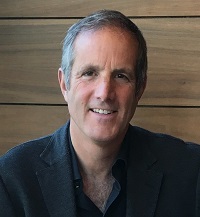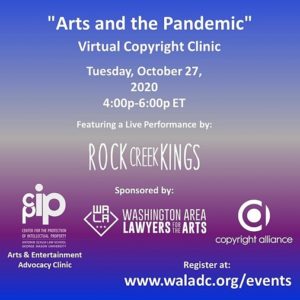Author: C-IP2
Professor Daryl Lim Explores the Doctrine of Equivalents and Equitable Triggers
The following post comes from Yumi Oda, an LLM Candidate at Scalia Law and a Research Assistant at CPIP.
 By Yumi Oda
By Yumi Oda
The term “claims” may not mean much to many, but it means the world to most patent practitioners. As Judge Giles Rich once observed, “[t]he name of the game is the claim.” Read more
IP Scholars Question the Legality and Wisdom of Joint AG Proposal to Seize Remdesivir Patents
The following post comes from Colin Kreutzer, a 2E at Scalia Law and a Research Assistant at CPIP.
 By Colin Kreutzer
By Colin Kreutzer
While the vaccines are starting to roll out in the fight against COVID-19, the precise timelines for when they will be widely available continue to be uncertain. Read more
Professor Joanna Shepherd Explains Pharmaceutical Product Hopping in New CPIP Policy Brief
 CPIP has published a new policy brief by Joanna M. Shepherd, Vice Dean and Thomas Simmons Professor of Law at Emory University School of Law. The brief, entitled The Legal and Industry Framework of Pharmaceutical Product Hopping and Considerations for Future Legislation, discusses the practice of so-called “product hopping,” where a pharmaceutical company turns its focus to newer versions of its existing drugs. Read more
CPIP has published a new policy brief by Joanna M. Shepherd, Vice Dean and Thomas Simmons Professor of Law at Emory University School of Law. The brief, entitled The Legal and Industry Framework of Pharmaceutical Product Hopping and Considerations for Future Legislation, discusses the practice of so-called “product hopping,” where a pharmaceutical company turns its focus to newer versions of its existing drugs. Read more
Professor Shyam Balganesh on Understanding Privative Copyright Claims
The following post comes from Liz Velander, a recent graduate of Scalia Law and a Research Assistant at CPIP.
 By Liz Velander
By Liz Velander
Some argue that modern copyright law is decidedly market-oriented, almost entirely justified in utilitarian terms. By promising authors a set of marketable exclusive rights in their works, copyright is believed to incentivize the production of works of authorship. Read more
CPIP Roundup – December 2, 2020
Greetings from CPIP Executive Director Sean O’Connor

I hope you had an enjoyable, restful Thanksgiving. At CPIP, we’re winding down 2020 while planning our spring and summer events—including biopharma and copyright roundtables, the 2021 WIPO-CPIP Summer School on Intellectual Property, and more. Read more
#GivingTuesday: A Message from CPIP on Giving Tuesday 2020

As we enter the holiday season and look ahead to 2021, we hope that you will keep CPIP in mind as you plan your end-of-year giving. Your support is critical to ensuring that CPIP can continue to bring reason and balance to the academic debate on intellectual property (IP) by engaging academics, creators, and innovators in a scholarly dialogue. Read more
Professor Tabrez Ebrahim on Artificial Intelligence Inventions
The following post comes from Associate Professor of Law Tabrez Ebrahim of California Western School of Law in San Diego, California.
 By Tabrez Ebrahim
By Tabrez Ebrahim
Artificial intelligence (AI) is a major concern to the United States Patent and Trademark Office (USPTO), for patent theory and policy, and for society. Read more
CPIP’s Sandra Aistars and Scalia Law Arts & Entertainment Advocacy Clinic Co-Host Virtual Copyright Event on Arts and the Pandemic
The following post comes from Chris Wolfsen, a recent graduate of Scalia Law and a Research Assistant at CPIP.
 By Chris Wolfsen
By Chris Wolfsen
On October 27, 2020, CPIP Director of Copyright Research and Policy Sandra Aistars and students from her Arts & Entertainment Advocacy Clinic at Scalia Law School co-hosted a virtual event with Washington Area Lawyers for the Arts (WALA) and the Copyright Alliance. Read more
Rethinking § 101: Professor Talha Syed Takes a Different Look at Subject Matter Eligibility
The following post comes from Colin Kreutzer, a 2E at Scalia Law and a Research Assistant at CPIP.
 By Colin Kreutzer
By Colin Kreutzer
When most people think of patentability requirements, they think of whether an invention has been “done before.” Novelty and non-obviousness under 35 U.S.C. Read more


